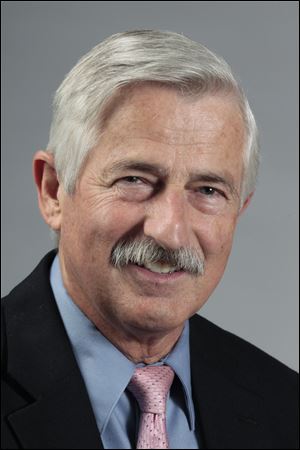
COMMENTARY
Media clichés stand the test of time
For better or worse, phrases continue to degrade language
4/7/2014
Walton
A couple of years ago, we had fun with a piece that lamented how clichés abuse and degrade our language. The column ignited (dare I say it?) a firestorm of reader reaction.
I was surprised that so many of you had your own pet peeves (there I go again). Suffice it to say (oops) that today we revisit the whole sorry business, and this time we take on those of us who labor in the journalistic vineyards (sorry).
Writers for the Washington Post’s Sunday Outlook section and later the media blog Romenesko compiled a list that examined the news media’s own tendency to rely on the trite, the unimaginative. Verbal crutches, in other words. Forgive me for the italicized trespasses that follow.
Needless to say, you can probably find many of these examples in today’s paper. It’s not as if they’re shrouded in secrecy. Yet so many of us scribes continue to turn a blind eye.
When we in the media talk about the influence peddlers in Washington, they are always well-heeled lobbyists. Politicians are trading barbs and tossing around a political football. And of course, the most senior among them are described routinely as grizzled veterans. If “grizzled” implies wisdom, fine, but I think it just implies old.
When a commentator wants to sound clever, he says or writes Yes, Virginia, there is a (something). Or what happens in (somewhere) stays in (somewhere). You can bet that whatever it is he’s writing about is a hot-button issue.
Here’s one you see all the time: (something) on steroids, as in “the Veterans Memorial Skyway Bridge is like the Anthony Wayne Bridge on steroids.” We should keep that one on the sports page.
When a fresh face emerges, she doesn’t just announce her candidacy, she bursts onto the national scene. Should her campaign falter, her advisers will be hastily convened and they will find plenty of blame to go around as they make a last-ditch effort to repair the damage.
If she’s the poster child for ineptitude, we say her political career has fallen on hard times. I’d rather fall on good times.
When someone behind the scenes does something great, we refer to the individual as an unsung hero. Evidently, in our business heroes can’t sing.
An investigation becomes a probe, something you do not want to be on the other end of. Complicated regulations become Byzantine rules. At least that’s what the growing body of evidence suggests.
Things can be often-cited, little noticed, closely watched, or much ballyhooed. God forbid something might only be moderately ballyhooed.
I wish we could just deep-six these expressions. I’d like to grab ’em by the throat, but that would only underscore the cycle of violence.
And that would upset the powers that be. Does anyone know who the powers that be really are? Are there powers that don’t be?
Be that as it may, how about the journalist’s fondness for putting “not-un” in front of words, as in “the senator’s speech was not uninspiring.” Isn’t that a triple negative or something? Why not just say his speech was “inspiring”? Unless, of course, it fell on deaf ears because his audience was asleep at the switch.
Why must every rebuke be a stinging rebuke and every proposal be a modest proposal? Same for arrays: They’re either dizzying or dazzling. Why are interviews always wide-ranging?
Here’s one we use too much: He rose from obscurity. Maybe journalists do that because most of us are obscure. We need to stop using “effort” as a verb and we need to refuse further use of (Anything) 2.0, or 3.0, or whatever.
Here’s one I confess I’ve overused to death: (something) shines a spotlight on (something). My version varies slightly when I make the point that The Blade’s history of investigative journalism means we are “shining a flashlight in the dark corners.”
I like the metaphor and it does create a nice mental image, but it has become my own personal cliché. I need a new one, provided it is neither Machiavellian nor Orwellian, lest I offend the Twitterati.
Going forward, who within the great commentariat will be journalism’s game-changer? What will be the tipping point that reins in journalistic clichés? When will we learn to think outside the box?
Will there be a paradigm shift, affording us a palpable sense of relief? The likelihood is tenuous at best. Only time will tell, but I’m afraid we’ve passed the point of no return.
Yes, at the end of the day and in the final analysis, I fear this is the new normal.
Unfortunately, we in the news business can’t help ourselves. So go ahead and cue the violins.
Thomas Walton is the retired editor and vice president of The Blade. His column appears every other Monday. His commentary, “Life As We Know It,” can be heard each Monday at 5:44 p.m. on WGTE-FM 91.
Contact him at: twalton@theblade.com